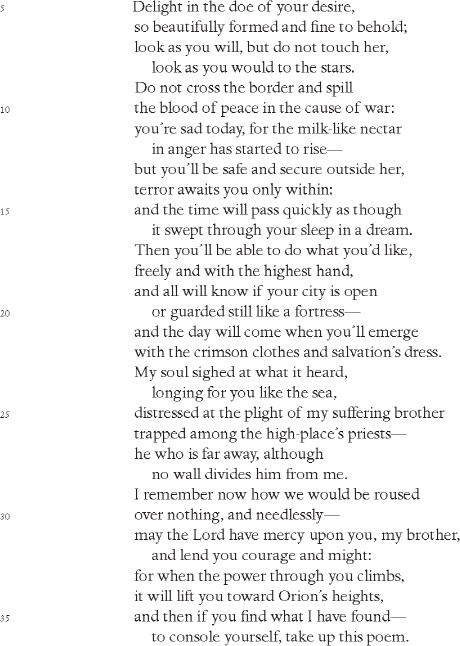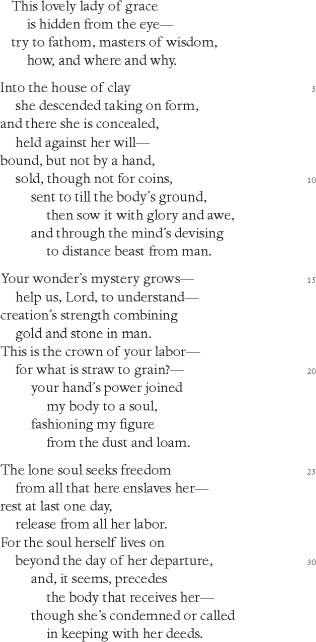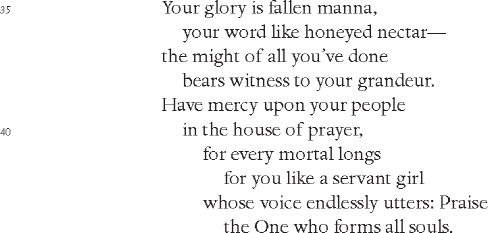YOSEF IBN TZADDIQ
(c. 1070–1149)
“A sage and a sage’s son” is how Ibn Daud in his Book of Tradition characterizes YOSEF IBN TZADDIQ. About his life we know only that he was born to a family of considerable means and social standing, wrote—in addition to his poetry—at least one important work of philosophy (Sefer ‘Olam Qatan, or Microcosmos), and was appointed to the Cordovan religious courts in 1138 as a judge, a position he held until his death in 1149 . Moshe Ibn Ezra describes him as kind-hearted, gracious, and remarkably learned in matters of religious law. He maintained close ties with the leading figures of his day, including Yehuda HaLevi. Ibn Tzaddiq’s friendship with Avraham Ibn Ezra is reflected in poems the two men exchanged about the delicate topic of the latter’s wedding-night troubles. Some thirty-plus poems by Ibn Tzaddiq have come down to us, no doubt only a small part of his work, which was divided equally between secular and liturgical modes. Schirmann notes that more than a few of these can be considered among the finest works of the period. In particular, Ibn Tzaddiq excelled at the strophic muwashshah, and the fluid liturgical poem below (“Lady of Grace”) is a good indication of why he was known as a master of that form. In the two poems translated here, the poet’s human understanding of religious law and his knowledge of Neoplatonic philosophy, respectively, are embodied in the weave of the verse with subtlety, humor, and power.

A WEDDING NIGHT’S CONSOLATION


LADY OF GRACE

